Jim Webb isn’t talking about Donald Trump, either. The one-time presidential contender in 2016 and Senate Democrat from Virginia takes direct aim at Joe Biden, Kamala Harris, and leadership at State and the Pentagon in his demand for accountability. And that starts at the top — the present top, no matter how much buck-passing it attempts.
Webb starts off by heaping scorn on Biden and Harris in particular, barely disguising his contempt for hidin’ Biden:
In Washington Joe Biden, the president who had ordered that the evacuation of Americans and their allies be accomplished by August 31 so that his new Administration could celebrate finally ending the Afghanistan war on the twenty-year anniversary of the 9/11 attacks was, characteristically, remaining out of sight. His election campaign had largely taken place in the basement of his home in Delaware, minimizing his tendency to make public gaffes. After the American military was ordered to occupy the Kabul airport following a blitzkrieg of sorts by the Taliban that toppled the Afghan government, he disappeared for days inside the protected isolation of Camp David or at his home in Delaware, from whence he would appear from time to time to read a set of carefully prepared remarks and then again disappear without taking questions.
Vice President Kamala Harris was finishing up a quick trip to Singapore and Vietnam and skipped a stop in California on the way home where she had intended to campaign for its embattled governor as he fends off a voter recall to throw him out of office. At no point in her Asia trip did the Vice President speak directly about the ominous forced error in Afghanistan that had been initiated by the Biden Administration, although the world was waiting for reassurance from America’s top leadership as events on the ground morphed out of control. In a remarkable display of tone-deaf diplomatic naiveté, the Vice President was pictured sitting in front of a sculpture of Ho Chi Minh during a meeting with Vietnam’s President Nguyen Xuan Phuc at the very moment the rest of the world was comparing America’s humiliating and incompetent dilemma in Kabul with the 1975 fall of Saigon.
I wondered about that at the time, too. The entire trip seemed ill-conceived at a time when we were busy retreating from Afghanistan anyway, as though even the political advisers at the White House were completely incompetent. The photo op was just the cherry on top of the humiliation at that time, with worse to come.
Speaking of which:
In Kabul, America’s capability to conduct an orderly withdrawal from Afghanistan had turned into a disgusting nightmare of incompetence that can only be rectified by holding those responsible accountable. A midnight abandonment of America’s most important airbase in Bagram on July 2 had put a double hex on a proper retrograde from the country, first by giving up a large-scale aviation platform whose massive runways and extensive outer perimeter made it eminently usable and defendable, and second by allowing the Taliban to release thousands of rabid terrorists who had been imprisoned there and were now on the loose. In Kabul, American military units were largely forbidden to leave the airport to rescue and escort Americans and allied Afghans back to the airport. An agreement was reached where the conquering Taliban controlled the checkpoints outside. To make matters impossibly worse, American officials in Kabul were reported to have given the names and locations of some of our citizens and close allies to the Taliban, supposedly for the purpose of expediting their efforts to leave the country but in reality, simplifying the Taliban’s search for the very people whose lives depended on escaping from their clutches in the first place.
American credibility is at stake unless we start making leaders pay for their errors and bad judgment, Webb warns:
In Washington and in command centers elsewhere, those who had concocted this planned withdrawal, both military and civilian, were filling the airwaves with the usual “not me” rhetoric that has sidestepped accountability and enabled promotions, advances, and post-career financial rewards for the past twenty years. The roots of how we reached this final imbroglio can be found in the decisions that were made not just at the end but all along the way. And in the painful events of these final weeks, there are blatant indicators as to how we must rid ourselves of this political pox and proceed into the future.
What could have happened under better leadership at the top? What should have happened? How do we digest this? And what should America do if we want to move forward in a way that preserves our credibility?
It’s not just our credibility at stake in this question, Webb argues, but the credibility of self-governance in general. If we cannot hold leaders accountable for such disasters, can we truly claim to be self-governed? Or hold it out as the superior system of organizing nations?
Even the very best among those who come forward to serve often find that the good they came to do is stultified by distracting debates over the very premise of why the American system of government was created and whether the icons of our past were truly motivated by the words incorporated in our most revered documents. The military itself is increasingly being used by leftist activists as a social laboratory to advance extreme political agendas. Congressional oversight leans heavily toward social issues, with too many members struggling without success to focus on accountability at the very top when, for instance, good people at the bottom have to implement poorly conceived plans that might kill them.
This is not an exaggeration, and it is not just what has been happening at the Kabul airport and elsewhere in Afghanistan. Those situations merely provide us a microcosm, a symbolic moment in time, that allows us to see the implications of confused or distracted leadership, military and civilian alike, motivated by political machinations. In the American political system, we have the capacity to demand that this inequity change. What we need is the will to do it.
So what is the Biden White House doing at the moment? Strategizing to avoid as much accountability as they can. It’s time to move on, Politico reports:
The United States officially ended its 20-year war in Afghanistan. Now, President Joe Biden and fellow Democrats are racing to put the conflict’s tumultuous exit behind them.
Consumed with combating the most intensive crisis of Biden’s presidency over the last few weeks, White House officials are plotting a way forward that hinges tactically on Biden’s handling of the Covid-19 pandemic and passage of his sweeping economic agenda on Capitol Hill.
The cold political calculation is based on a belief inside the White House that Americans by and large will ultimately process the withdrawal from Afghanistan as a necessary, albeit difficult, act, even if they harbor lingering doubts about its execution.
They’re moving on even while at least hundreds if not thousands of Americans can’t move out of Afghanistan. This isn’t “lingering doubts” — it’s unfinished business. Biden and his team want to pretend it doesn’t exist.
No small wonder Webb wants real accountability for these failures. First, though, we have to accept responsibility for promoting and choosing this leadership. That’s on voters to be sure, but also on the party leaders who rallied behind an incompetent and corrupt old fool whose main claim to fame is to have been on the wrong side of every foreign policy question over the last five decades. Until those people accept responsibility for this disaster — indeed, even recognize it as such — there won’t be any accountability for this disgrace.
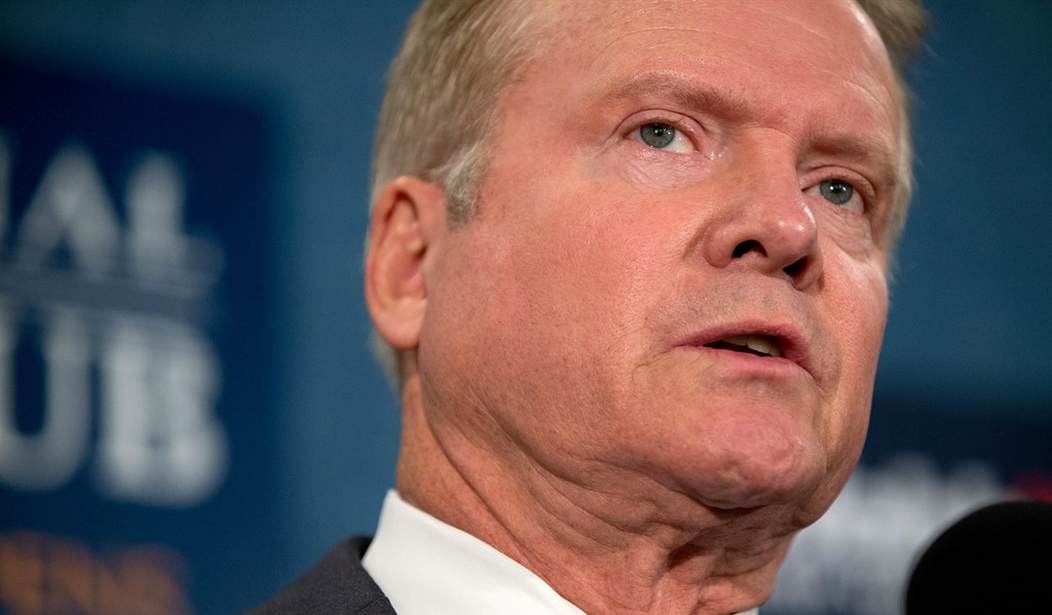
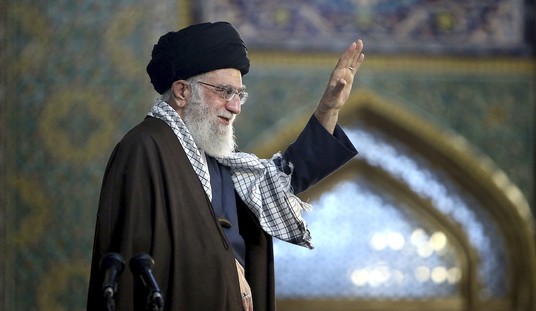
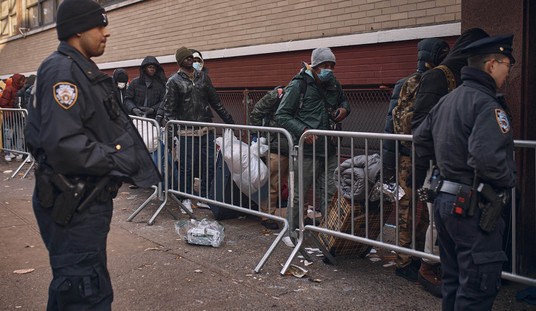

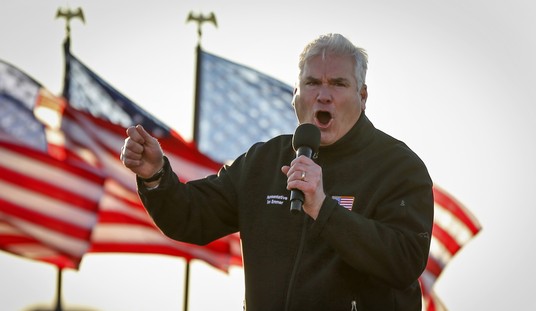

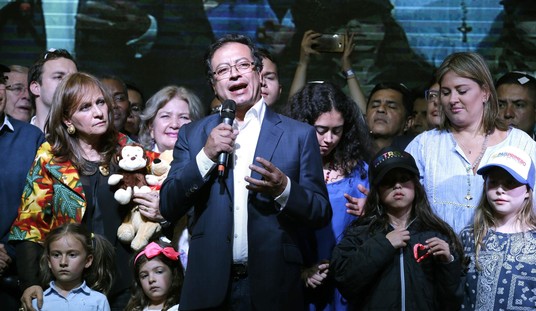
Join the conversation as a VIP Member